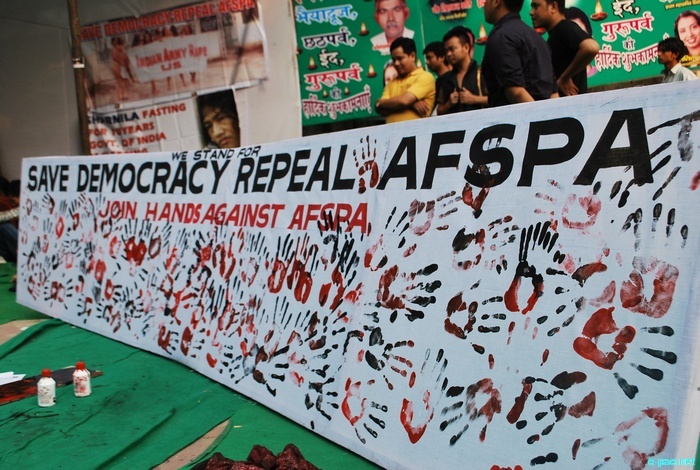The mere mention of armed forces evokes the image of courage,
bravery and discipline in India. However, in north-east India and Jammu and
Kashmir, the picture is vastly altered. Military force is synonymous with fear,
brutality and suspicion. The main reason behind this contradictory public image
is the “draconian” law, Armed Forces (Special Powers) Act. It has vested the
armed forces with absolute power mainly to aid fight against terrorism and
insurgency. Several unprovoked arrests, tortures, rapes and deaths go unnoticed
under the wraps of AFSPA.Unmarked graves have been found in the valley. Fake encounters
and disappearances make headlines. At times,
it is a case of mistaken identity. Violence in Jammu and Kashmir has increased
since implementation of AFSPA in 1990. Similar incidents are reported from the
north-eastern states.
Jeevan Reddy Commission (2005) had recommended repealing
AFSPA and bringing a humanitarian law in place. However, no concrete steps have
been taken by the central government till now. In areas where normalcy has been
restored, AFSPA needs to be repealed entirely. Army presence without AFSPA can
ensure law and order in those areas. 7 districts of Manipur are exempt from
AFSPA as of now and largely, no untoward incidents have occurred in the region.
Other recommendations include incorporating a few clauses of AFSPA to Unlawful
Activities (Prevention) Act, 1967 which is applicable throughout the country.
It can effectively counter Naxalist movement arising in parts of India.
In cases where armed forces need to be vested with special
powers to maintain law and order, certain humanitarian changes need to be made
to AFSPA. The detention period after (forceful) arrest should be modified to a maximum
period of 2 years (Justice Verma Committee recommendation). Sexual crimes
against women in particular cannot be condoned as a part of duty towards
national security. No central government sanction requirements should be
retained to initiate proceedings against public servants or army personnel
alleged of crimes like rape.
The main deterrent against “humanization of AFSPA” is army
resistance. The defense chief whips need to re-evaluate their stance. National security
cannot be compromised with. So with human rights. The armed forces need to
reinforce trust and faith amongst people of Jammu and Kashmir and north eastern
states. The young mass should be mobilized and engaged in constructive pursuits
instead of being suspected as traitors in their own country. Women must be
treated with dignity at all times. All of this is much easier said than done. Beneath
the tough façade of the army, there lies a flawed human – very much like us. Suitable
arrangements (like psychotherapy sessions, etc) should be made in order to
maintain a healthy mental balance of our soldiers. Most of them suffer bouts of
depression and emotional turbulences. Government, armed forces and the people
in general must aim to bring in peace and harmony. This is vital to ensure
functioning of a successful democracy.

Comments